Coffee grounds for peace lily come with a fair share of questions like how much and how often? But the most important question is – are coffee grounds good for peace lilies? Yes, coffee grounds are good fertilizers because of their high nutrient content.

The grounds have an acidic nature that helps to lower the soil’s pH. Please sit back and relax and let us answer the many other queries that might be buzzing in your mind right now.
JUMP TO TOPIC
- How Do Coffee Grounds Benefit Peace Lily?
- How Much Coffee Should Be Added to the Peace Lily?
- How Often Should You Add Coffee Grounds to Your Peace Lily as a Fertilizer?
- How Do You Use Coffee Grounds for a Peace Lily?
- What Are the Different Ways to Prepare Coffee Grounds for Peace Lily?
- What Are the Cons of Using Coffee Grounds for Peace Lilies?
How Do Coffee Grounds Benefit Peace Lily?
💥Coffee grounds may benefit peace lilies by being nutrient rich, having an abundance of organic material, being acidic, and having beneficial microorganisms present. It has been quite an acceptable choice as supplemental fertilizer for naturally grown houseplants like the peace lily.
– It Is Nutrient Rich
Coffee grounds are rich in nitrogen, a prized nutrient on which houseplants thrive. Peace lilies thrive with the combination of nitrogen (N), phosphorus (P), and potassium (K), the famous NPK fertilizer.
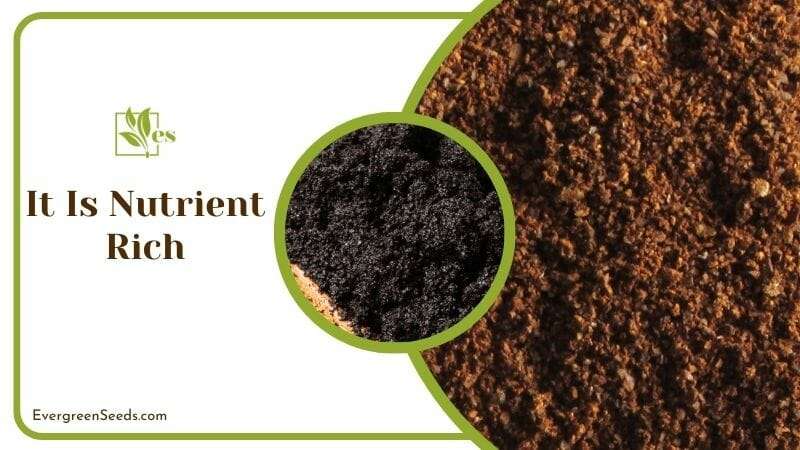
You can always use manufactured fertilizers, but if you have coffee grounds at hand, why not use them instead?
– An Abundance of Organic Matter
Other than the nutrient content, coffee grounds have abundant organic material. Organic matter is the most important component of any plant as it serves as a nutrient reservoir, stores water, and helps in reducing surface compression and crusting. Therefore, organic matter, when mixed with soil, can help your lily plant with aeration,
– Acidic Nature
Knowing the pH level of your plant’s soil, some plants can survive in soils with an acidic pH while the rest will die. Similarly, some plants thrive in alkaline soils, while others have difficulty surviving.
The lily plant thrives in soils having a pH between 5.8 to 6.5 which is considered fairly acidic. Therefore, the coffee grounds are a good match for the lily plants.
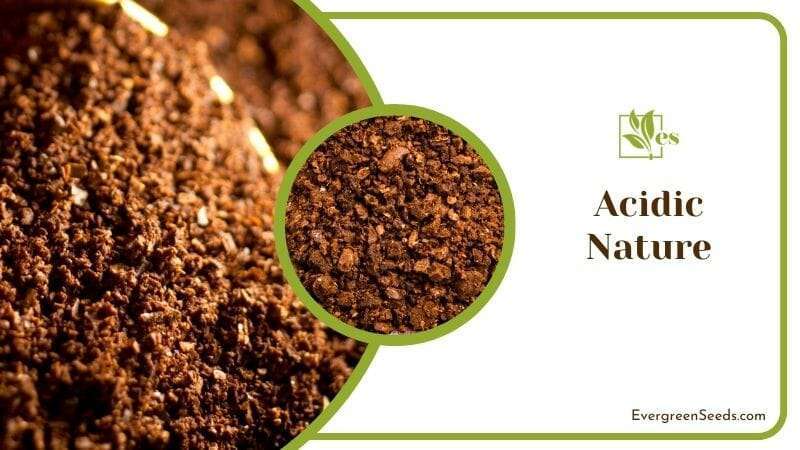
While coffee grounds can be a source of boosting your lily’s acidity, not all forms of grounds work the same. You must add them unwashed as it is when they have the most acidity.
Make sure to add your grounds to the soil rather than waiting for days or weeks, as their acidity decreases as time goes by.
– Presence of Microorganisms
A few microorganisms, like earthworms, are good for your houseplants. They eat the decayed organic matter. And that is not all; they wriggle through the soil, helping in aeration!
You do not need to hunt for earthworms, of course, unless you want to. Compost containing leaf litter and some organic materials is sufficient to draw all the earthworms you need. Your plants will thank you one day!
How Much Coffee Should Be Added to the Peace Lily?
How much coffee should be added depends on the plant and your expertise in using coffee grounds in this way. If you are starting your day by brewing some coffee, a cup of the leftover grounds is sufficient to be added to the plant.
You can go all in with a cup quantity, but if it is your first time, we recommend you take it slow to see how the plant reacts. You can add more if all goes well.
It is possible that you will harm the plant, as too little is bound to create a nutrient deficiency, while too much can affect the plant’s overall health, which shows first in the plant’s leaves.
How Often Should You Add Coffee Grounds to Your Peace Lily as a Fertilizer?
How often you should add coffee grounds is just as important as how much of it should be added. Be mindful of both aspects at all times. There needs to be evidence to support how much is the perfect amount.
Some plant owners will add one pot of coffee to the plant every month and have good results, while some just eyeball it and add it sparingly every couple of months and yet still have the optimal outcome.
We know there is a big gap in the time difference, but because the lily plant has different requirements as it goes through its further growth and dormant phases, we cannot pinpoint how often you should add the grounds to your plant.
Coffee grounds should never be added daily. To help you with this, we recommend marking your calendar and observing how your plant behaves after two months of adding the grounds. After two months, you will be able to have a verdict of ‘how often’ of your own!
However, with winter approaching, you should add the grounds with a gap of six weeks to allow your plant to grow into the best version of itself in its growing seasons, spring and summer.
How Do You Use Coffee Grounds for a Peace Lily?
You can use coffee grounds for a peace lily as a fertilizer, a pet-deterrent, for reversing leaf browning caused by fertilizer, protecting from pests and insects.There are different ways in which you should use the grounds for each scenario.
– Use Them as a Fertilizer
The grounds, rich in nutrients and organic matter, serve as a natural fertilizer for the lilies. It helps maintain the acidic pH of the lily plant, and soil aeration and water drainage characteristics prevent waterlogging, thereby saving it from dying.
Coffee grounds act as a slow-release fertilizer compared to the rest of the fertilizer options. It will take time to infuse its nutrients into the plant slowly and gradually.
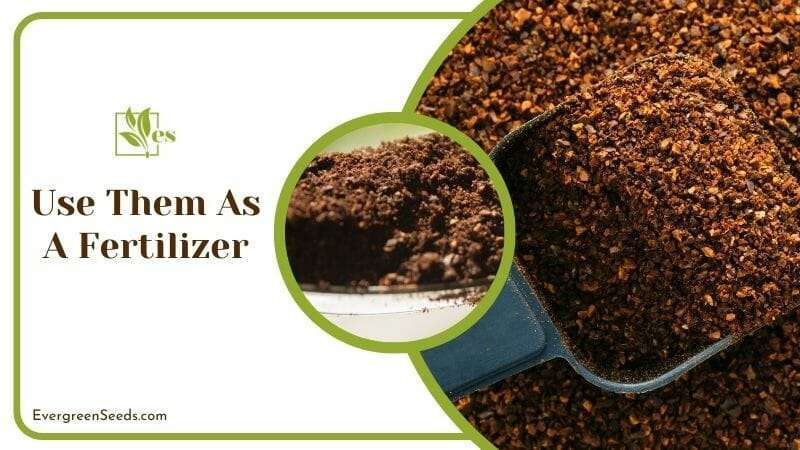
It takes approximately two to four months to see the benefits of using the grounds as a fertilizer. They are readily available at your local supermarket.
All you need to do is spare some of the ground and spread it in a thin and even layer on the plant’s soil. It will seep further into the soil when you water your plant as often as you normally would.
– Use It to Keep Your Pets Away
The lily plants are breathtaking and while you sit and just be amazed by them, be sure to keep your pets away, like dogs and cats.

If the dogs consume the plants, they likely experience an inflammatory reaction going up the airway and progressing to the throat and tongue, resulting in mouth swelling. Similarly, if consumed by cats, it will result in mouth swelling and an upset stomach.
Placing your plant at a high level might stop dogs from consuming it; you will have a hard time stopping the cats as they can jump anywhere and everywhere. However, adding mothballs to the grounds and soil combination will keep the cats away from the plant lily and the rest of your indoor garden.
– Reversing the Leaf Browning Caused by Fertilizers
If you have brown or yellow leaves, it can be because you have overwatered or underwatered them. A peace lily plant does not require much water; once a week is enough to help the plant thrive. The major concern should be moist soil rather than soggy soil.
Too much time in the sunlight can also cause leaf browning. The situation can progress with the use of the wrong kind of fertilizer. Coffee grounds can reverse the damage caused by fertilizers but not those that arise because of ill-suited lighting and watering choices.
– Protect Your Plants From Pests and Insects
The grounds are a natural way of repelling pests and insects. They have an abundance of caffeine and diterpenes; both are ideal pest-repellers.
Now, how to use these grounds to protect your lily? If you have finished planting the lily, indoors or outdoors, sprinkle them around your lilies. This boundary acts as a protective barrier against pests, snails, and other crawling insects. If Peace Lily’s leaves start to turn black make sure to check out this solution.
What Are the Different Ways to Prepare Coffee Grounds for Peace Lily?
The different ways to prepare coffee ground for your application on your peace lily are: as a mulch, as a liquid fertilizer, and as a natural compost. The first two methods are quite easy and quick to do, the composting takes quite a bit longer.
– Mulch
Mulching is a more common method for outdoor plants, but you use it for your indoor plants too.
The process involves spreading an even layer of organic matter on top of the soil. Organic matter acts as a water reservoir and supports the growth of useful bacteria and microorganisms. On top of it all, it serves the purpose of fertilizer too.
You can mix wood chips, leaves, branches, and even straw and add it to a handful of coffee grounds. Be careful of the number of coffee grounds you put in so that it doesn’t alter the soil’s pH.
– Liquid Fertilizer
Using coffee grounds as an organic fertilizer boosts plant photosynthesis and keeps detrimental insects away. The best part is that the used coffee grounds do just as well for this purpose. Roundup diluted coffee as a foliar spray or soil drench.
Preparing a liquid fertilizer from coffee grounds is as easy as it gets. Depending upon what you have, you will need five gallons of water, two cups of used or unused coffee grounds, a watering can, a filter, and a spray bottle.
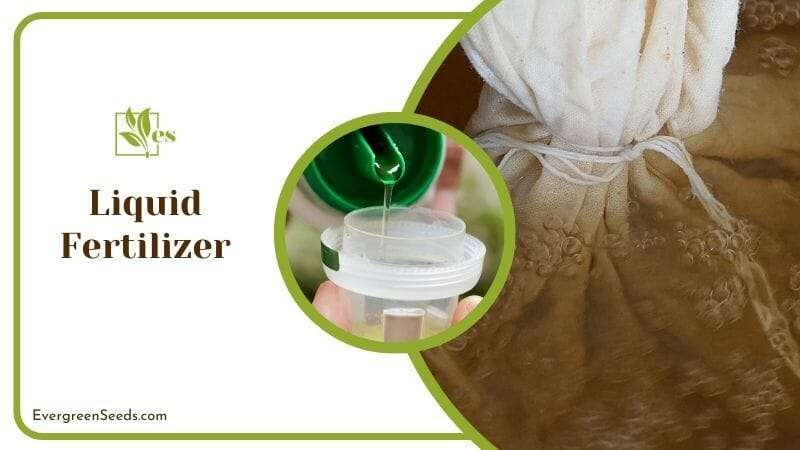
Add five gallons of water in a watering can and two cups of coffee grounds, Mix the liquid around a little bit and allow it to rest overnight. An important point to remember is to ensure that the grounds are fully dissolved in water; otherwise, they end up bundling together and form a barrier cutting off the water supply and resulting in the plant’s death.
Feed the soil your DIY fertilizer by pouring it into the ground surrounding the plants. If you wish to tend to the foliage, strain the liquid, add it to a spray bottle, and apply it directly to the leaves and stems.
– Natural Compost
Create organic compost with leftover grounds, old leaves, grass clippings, eggshells, and food scraps. Blend all these items with forty percent coffee grounds to produce natural compost.

This type of compost is suitable for a mature and outdoor peace lily. It needs to be applied only twice and thrice a year for the best results.
It can be modified to suit the needs of an indoor lily. All you need to do is lower the coffee percentage by ten to twenty percent.
What Are the Cons of Using Coffee Grounds for Peace Lilies?
The cons of using coffee grounds for peace lilies are possible retarded growth, excessive water retention, fungal growth, and pest and insect infestation. There are numerous advantages of using the grounds, but it would not be a wise move to overlook the disadvantages that come with it.
– Retarded Growth
If your soil is already acidic, adding coffee grounds will further lower the soil’s pH. Peace lilies thrive in pH ranges of weak acids. If the soil’s pH drops more than necessary, your peace lilies can be subjected to potentially retarded growth.
– Excessive Water Retention
When used as organic matter, and because of the water-keeping characteristic, the coffee grounds play the role of a sponge. Therefore, using them can increase the risks associated with overwatering your peace lilies.
However, it is not something that cannot be fixed. You can add coarse or perlite soil to modify the soil composition. This alteration will promote water drainage and reduce the dreaded jeopardy.
– Stimulates Fungal Growth
Coffee grounds can create a favorable growth environment for many fungal diseases. These diseases lead to mold forming, which can adversely affect your plant.
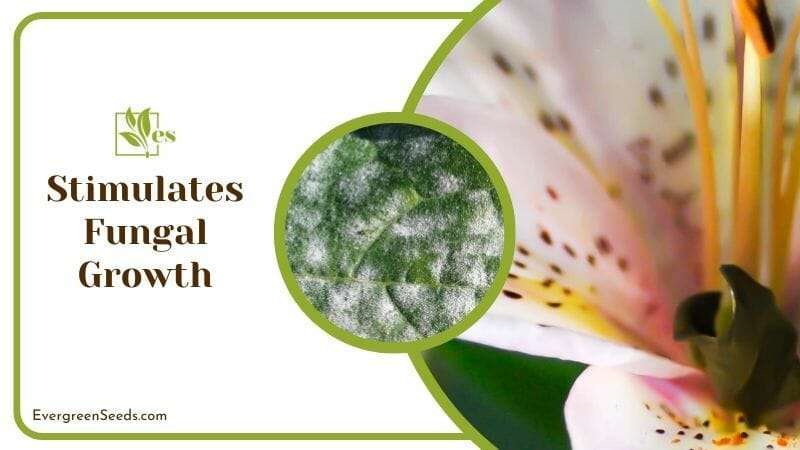
To minimize such risks, use the grounds as compost rather than just placing them on the soil.
– Pest and Insect Infestation
Even though coffee grounds have pest-repelling properties, they can also attract some pests and insects.
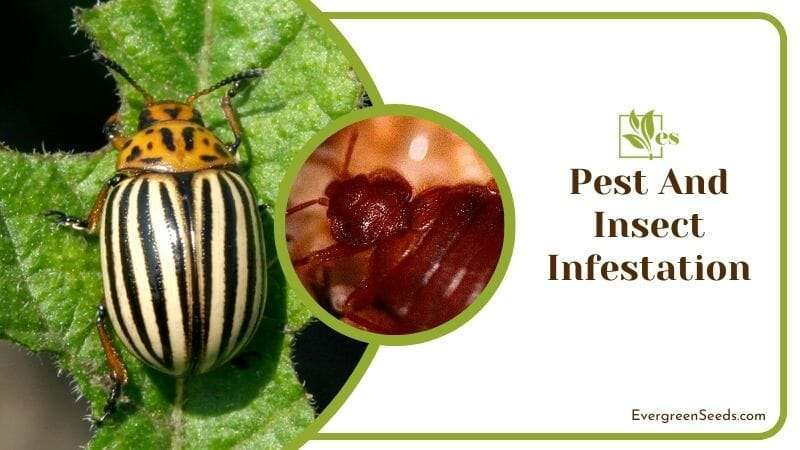
If you make the mistake of adding the grounds directly to your soil, you might notice ants, flies, and slugs making their way in. Therefore, avoid adding them without modification to avoid such pests and insects. Instead, use it when mixed with compost or as mulch.
Final note:
To help peace lilies grow best in its growing season of spring and summer, the best move would be to add the grounds with the onset of winter.
References
- Anne Sawyer. (2020). Coffee grounds, eggshells and Epsom salts in the home garden. University of Minnesota Extension.
Retrieved from https://extension.umn.edu/manage-soil-nutrients/coffee-grounds-eggshells-epsom-salts - Marjan Kluepfel, Robert F. Polomski. (Feb 15, 2022). Peace lily. Clemson Cooperative Extension.
Retrieved from https://hgic.clemson.edu/factsheet/peace-lily/ - Lisa Ogden. (2017). PLANTS WITH PERK. Barnyards & Backyards.
Retrieved from http://www.uwyo.edu/barnbackyard/_files/documents/magazine/2017/summer/plantsperk0717.pdf












